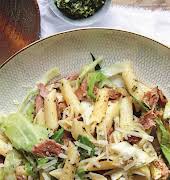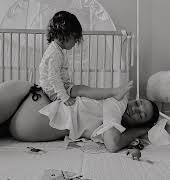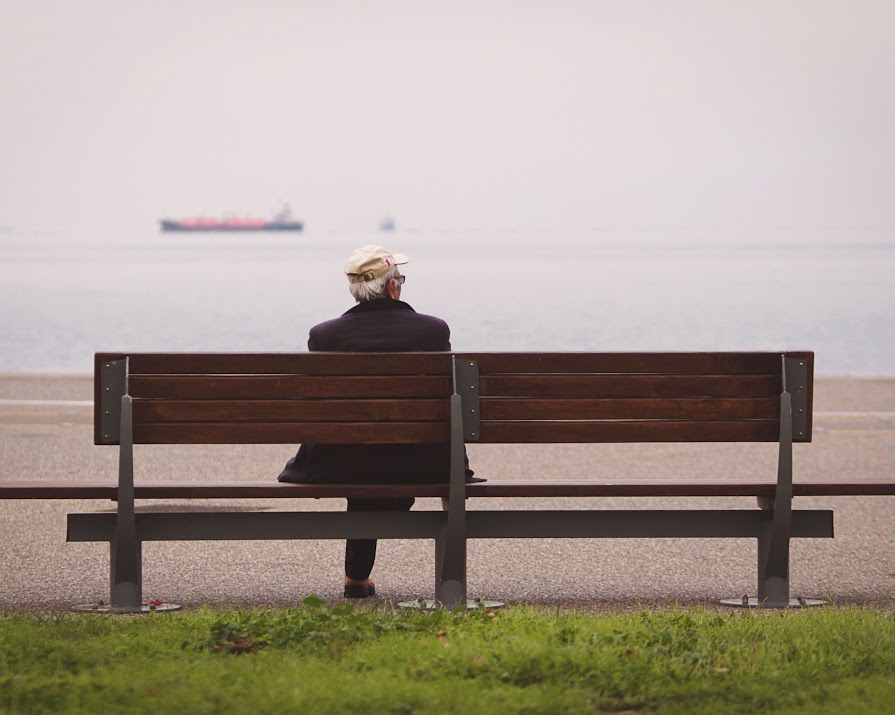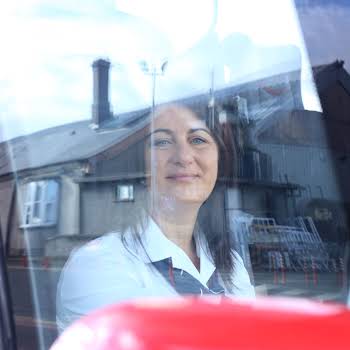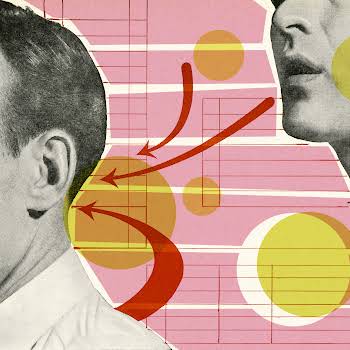
Coronavirus Diaries: ‘My Dad has vascular dementia. Covid-19 is a challenge we had not expected’
By IMAGE
26th Mar 2020
26th Mar 2020
In the latest chapter of Coronavirus Diaries, a woman in her late thirties struggles to protect her ailing father from Covid-19
“Dad is a walking medical miracle. Hospitals do presentations on him and he got an award a few years ago for still being alive after 50 years with diabetes.
He retired at the age of 47 due to ill health. Fast forward 20 years to now.
He is missing a leg which was removed just below the knee in 2005. He has osteoporosis which has led to collapsed vertebrae in his back. This means part of his back is immobile and extremely weak. He also has peripheral neuropathy.
The reality of this for him is that the nerves in his hands and feet are damaged causing numbness, weakness and pain. He says it can feel like someone has poured acid on him.
A few years ago he started to show signs of vascular dementia. Yes, more struggle and difficulty for us as a family and, more importantly, for him to have to digest and adapt to. Vascular dementia is not just memory issues, it is also a difficulty with planning, decision- making and following instructions.
When I use the term “walking medical miracle” I mean it literally. When dad lost his leg at the age of 52 he chose to learn to walk with a prosthetic leg rather than go in a wheelchair, which is the more common choice for his age group.
Every day since, he has got up and gone for a walk. He makes the best of every day in whatever way his body will allow him. His routine is what has kept him going for so long. He creates purpose in each day and finds joy in the smallest things.
We remind him multiple times a day of what he should be doing to stay safe. We have tried phrasing it in different ways, hoping it will click and sink in.
This has led to him having the same routine for many years now. This routine is the reason he has been able to keep some independence in his life as the dementia has progressed.
Coronavirus is a challenge we had not expected.
How can we now ask him to give up what has kept him alive and mentally strong for so long? An even harder challenge is how do we do it when his brain struggles to understand and retain new information?
We remind him multiple times a day of what he should be doing to stay safe. We have tried phrasing it in different ways, hoping it will click and sink in. We have used gentle methods and I have tried a few harsh reality conversations, but all he remembers are snippets and out of context.
From all our effort he has taken to believing that if he washes his hands before going out it will keep him safe the whole time he is out. But it won’t. Touch anything another person has touched and touch another surface or accidently touch his face, and he could be spreading the virus.
His current response is that he would rather get it and take his chances. I would support that if it was just him that he was putting at risk but it is his immediate family and the wider community that he is risking.
No matter how many times I remind him of this he keeps forgetting. He is risking the life of his wife who he loves so dearly, and me, his daughter, a high-risk candidate who shares a home with him. He would crumble if he led to us getting infected, or anyone for that matter.
It is so hard not to get frustrated and drained by the repetition and the constant need to keep disinfecting surfaces he may have touched.
I have had to implement social distancing in the house as I am trying to self-isolate in our shared home. It is so hard not to get frustrated and drained by the repetition and the constant need to keep disinfecting surfaces he may have touched.
The level of vigilance needed during this coronavirus outbreak is more than a lot of fully-functioning adults seem to be able to manage so how can we get his brain to comprehend it?
The flipside of getting him to follow the government guidance is that Dad’s body is degenerating. The unknown right now is how quickly that will happen if he can’t go out and do his daily routine. It is after all his form of exercise which keeps his circulation going and his body from stiffening.
He has no friends so there is no one to ring or video call. His only chat each day outside of the home is with the acquaintances he has made over the years on the route he walks, the coffee shops he frequents, and the supermarkets he visits daily.
What will not living the life he has created and having these interactions mean for his mental wellbeing?
However simple someone’s life may seem, it is theirs, and something they may not be able to get back after this virus has finished attacking us.
How do we support elderly people with diminished capacity and the mentally vulnerable during this time when we are taking all they have worked so hard to create and sustain? However simple someone’s life may seem, it is theirs, and something they may not be able to get back after this virus has finished attacking us.
I’m in my late thirties, so whatever delays or impacts this outbreak has on the life I was creating I still have time to rebuild it and carry on towards achieving my dreams.
What will they have after all this?
While the word ‘guidance’ is used in the government’s message, I don’t feel I can stand at the front door and keep dad from what he feels he needs to do. I need them to be stronger and stricter in their message.
I can then record it, replay it multiple times a day for dad to remind him that this is not just my opinion or advice, this is what the government is enforcing.
Depending on how long this lasts there is a potential long-term reality that we as a family may be stuck living his pandemic routine with him for the rest of his days.
Like the struggle we have had in getting his brain to register new information and create a new routine in the current environment, there will be equal difficulty in getting his brain to switch back to his old routine.
In all we have achieved as a family we can manage whatever this journey brings, but we need more from the government to enforce stricter rules and support us in enforcing them with those that aren’t able to comprehend or adapt so easily.”
Photo: Unsplash
If you want to be featured anonymously in our Coronavirus Diaries series, contact online@image.ie
Read more: Coronavirus Diaries: The Dublin writer who’s ‘sheltering in place’ in an eerily still New York
Read more: What it’s like to have your wedding cancelled due to coronavirus
Read more: 5 valuable lessons you can teach your children (that they won’t learn in school)




